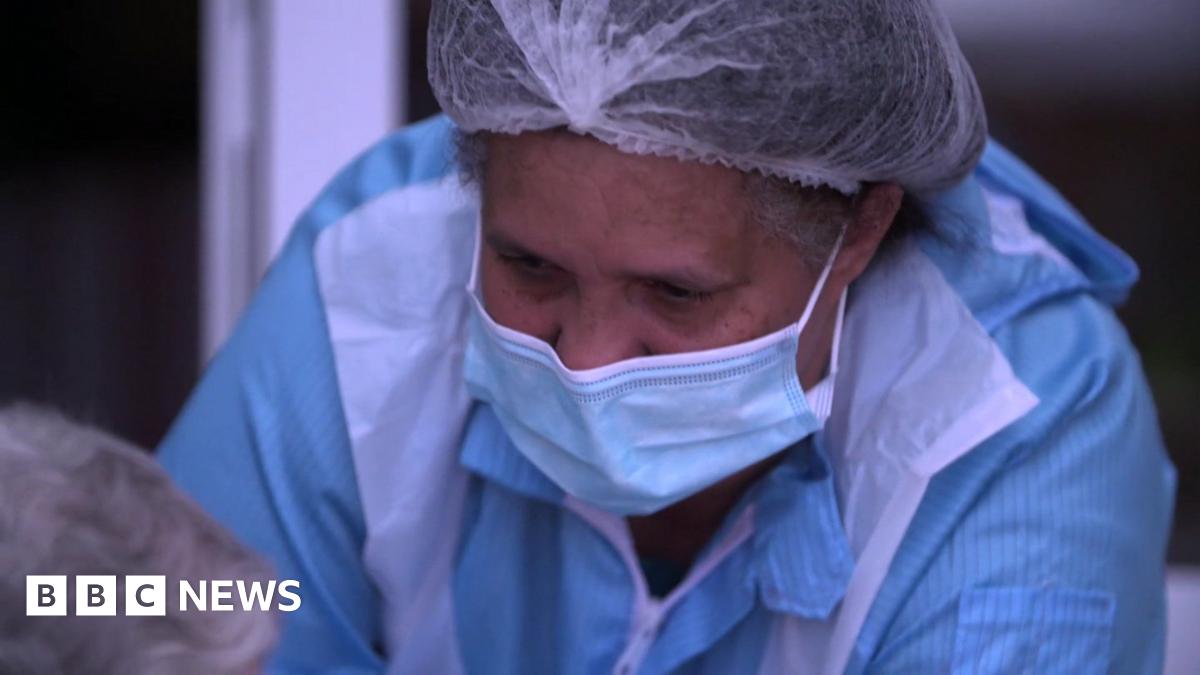Jean Adamson believes patients who arrived at her father’s care home from hospital could have seeded the virus there.
Other factors such as staff moving between care homes and the spread of the virus in the general community will have played a part but, she says, the rapid discharge of patients to care homes without them being tested or isolated was a choice.
“It was a reckless decision,” she says. “The way that my father and tens of thousands of other care home residents were sacrificed. It really gets me because I think it smacks of ageism and disability discrimination.”
In the five years since her father’s death she has become an active member of the campaign group, Covid-19 Bereaved Families for Justice UK.
She says the group wants the inquiry to look at the ban on care home visits that kept families apart for months.
They also want answers to why some people were “routinely placed on do not attempt resuscitation orders [DNARs]”, without discussion with relatives or an assessment.
“There was an abuse of the do not attempt resuscitation policy. We need to understand how that came about,” she says.
The inquiry will also examine the difficulties faced by care workers who supported people in their own homes.
This phase is expected to last five weeks, with the report not due until next year.
For both Maureen Lewis and Jean Adamson the memories of the pandemic remain traumatic and both say what they want now is the truth.
“We need to understand so that we can learn lessons going forward for when we have the next pandemic and what happened here should never happen again,” says Jean.
Maureen would like more recognition of how care services survived without much help.
In future, she says: “There needs to be more investment” and better planning for emergencies.
